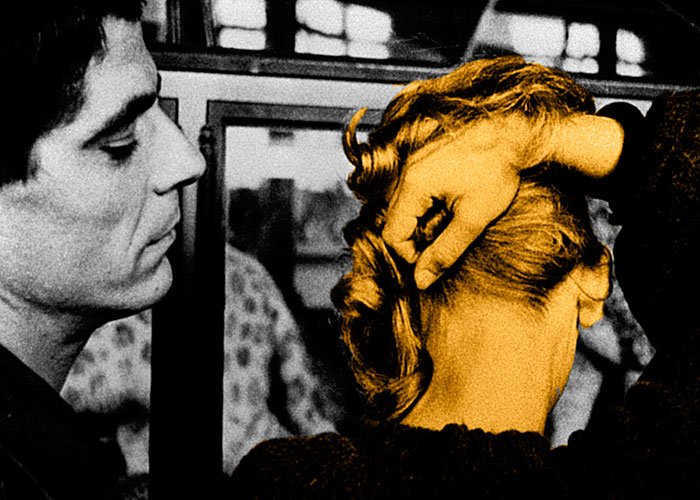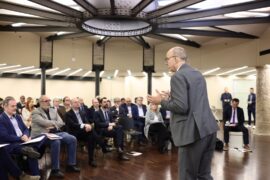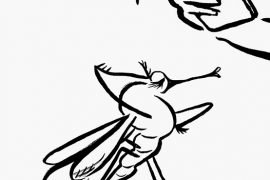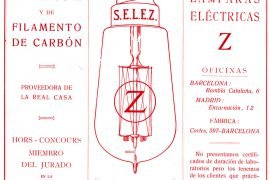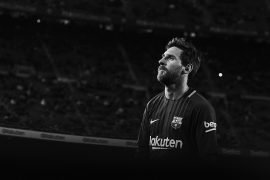[dropcap letter=”A”]
n office at Avenida Diagonal gave birth to Educa tu Mirada [educate your way of looking] , a film school in which the symbiosis between audio-visual, art and humanism is the basis for this oasis of thoughtfulness in the midst of so much noise. Javier Urrutia, philosopher and literary theorist specialized in aesthetics and comparative studies, created this project in Barcelona, whose seminars are already traveling in several cities of the Spanish geography. It is an itinerant and face-to-face school that began modestly disclosing the keys of the invisible: images, affections and feelings through films, paintings, literary fragments… tracing threads and crossing thresholds, away from the technical and conventional approach to this art, which is understood as a universal code, as the way to go to become (or at least try to become) free and conscious individuals.
“We live in a world saturated with information and images, and the worst is that these images no longer provoke us, they are suspiciously similar and aseptic. How can we feel the fascination or the illusion for life again?” Convinced that creating meaningful and beautiful images can connect us to reality -that is forged, itself, by images- Urrutia assures that nurturing our imagination is also cultivating our being. For this reason he has chosen to be surrounded himself by a team that shares the same passion towards the discipline, among which are Andrés Duque (“Ivan Z”, “All You Zombies” or “Oleg and the rare arts “), Mireia Iniesta (“The Academy of the Muses”), Adrián Silvestre (“Natalia Nikolaevna”,”The Love Objects”) or Rosa Delgado Leyva (“The Futuristic Screen of the Journey to the Moon by George Méliès to the Electric Hotel of Segundo de Chomón”) along with other brave ones who watch the cinema from the other side of the mirror, and who from time to time come together to resurrect works, ideas, images, projects.

A laboratory to transfer cinematography
Works by Dulac, Buñuel, Vigo, Deren, Serra, Mekas, Warhol, Akerman, Brakhage, Anger, Farocki, Zulueta, Weerasethakul… mark the route to explore the limits of cinematography in an annual laboratory course in which auteur and experimental cinema is investigated, because today -they claim from Educa- you can find hints of cinematography everywhere, from the modern practices of the youtubers to satellite images or other sophisticated computer processes that, a priori, have nothing to do with the cinema “conventionally” understood. On the agenda: the hesitation of the real, the non-places, the feminist terror, geology and new media, the limits of desire…. As for the teaching staff: an experimental filmmaker, an audio-visual theorist, a feminist critic, a philosopher.
“It would be enough if the whiteness of the screen could reflect its own light to blow up the universe. Cinema is a magnificent and dangerous weapon if it is handled by a free spirit. It is the best-known tool to describe the world of lies, emotion and instinct” Luis Buñuel, 1953.
Sexuality, dangerous forms and David Lynch
Traveling seminars on film and sexuality, cinema and adolescence, film and dance, David Lynch or on borders between reality and fiction or cinema of monsters, shadows and darkness, have been traveling for months between Barcelona, Mallorca and Madrid to educate the way we look and to remove veils, to learn to see and question and decipher this universal code called “cinema”. Intensive seminars that are now eleven but that are mutating and evolving from meeting to meeting. “The themes choose us. The origin is irrational and wild, and little by little it becomes domesticated, it takes shape in the form of a seminar or a course”.
With them we can say that Barcelona is home to one of the most avant-garde and free film schools, whose objective is not to teach or talk about technique but rather about aesthetic sensitivity, critical thinking and gender equality. The key is to have broken with the specialization and to underline the links and bridges between works, authors and arts to investigate thoroughly the purely cinematographic.
Because “watching movies is constantly being born-again”, it is important to learn to watch what it is being looked at, since doing so involves an internal journey, a movement that provokes something and breaks with the aseptic gaze that surrounds us. Because watching -says the founder of this oasis- “makes us visionaries, beings enlightened by the fact of living”.

